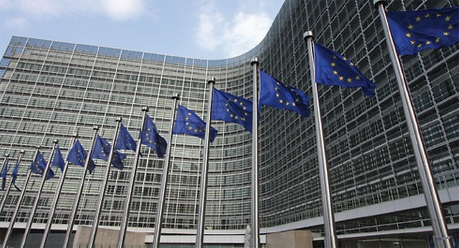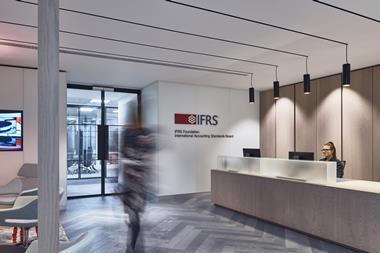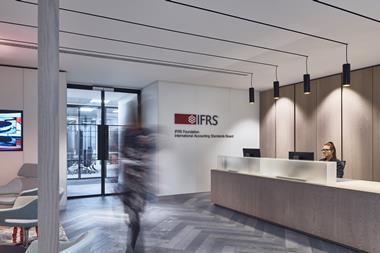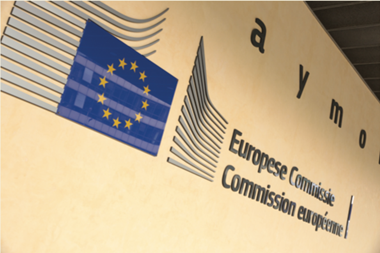The trustees of the IFRS Foundation have established an “Eminent Persons Group”, chaired by Jean-Claude Trichet, to provide strategic advice and counsel to them in relation to the proposed formation of a dedicated board for sustainability reporting standards.
In addition to Trichet, the former president of the European Central Bank, the group comprises: Sheila Bair, former chair of the US Federal Deposit Insurance Corporation; Nandan Nilekani, chair and co-founder of Infosys; Guillermo Ortiz, former Governor of Banco de Mexico and former chair of the Bank of International Settlements; and Min Zhu, former deputy managing director of the International Monetary Fund.
The trustees yesterday also announced that the IFRS Foundation had joined the International Platform on Sustainable Finance as an observer.
As concerns the “Eminent Persons Group”, it has had its first meeting and will have regular engagement with the trustees, they said.
It is not the only group helping the trustees with their work to determine the IFRS Foundation’s role in sustainability-related financial disclosures; they also have a “technical readiness working group” and a “multilateral working group”, for example.
The trustees are currently consulting on proposed amendments to the IFRS Foundation’s constitution to accommodate the formation of the proposed new International Sustainability Standards Board with the governance structure of the organisation.
G7 finance ministers this weekend said they agreed on the need for a baseline global reporting standard for sustainability, and welcomed the IFRS Foundation’s programme of work to develop this. They also said they recognised growing demand for more information on the impact that firms have on the climate and the environment.
PGGM, Schroders plus NGOs set out stall on EC corp gov initiative
Members of an “informal group on sustainable finance” that was formed last year have issued a joint statement on the European Commission’s controversial initiative on sustainable corporate governance.
The statement is supported by PGGM, Schroders, ShareAction, WWF and other NGOs.
In it, they say they welcome the initiative ”to improve the regulatory framework on company law and corporate governance”.

They say the reform should address five matters: board oversight of environmental, social and governance (ESG) issues, the role of boards over corporate sustainability strategy, sustainability-related incentives and long-term perspectives, an EU legal framework for supply chain due diligence, and policy coherence with other related pieces of legislation.
The Commission has been planning to propose a directive on “sustainable corporate governance” this year, following the roadmap set in the EU Green Deal. A public consultation on its initiative closed earlier this year.
It has the backing of a coalition of NGOs, including some of those in the aforementioned informal sustainable finance group, but is opposed by some business associations and attracted strong criticism from academics and others.
The “informal group on sustainable finance” surfaced with its first output last year, on the review of the Non-Financial Reporting Directive (NFRD).
PGGM was not indicated as a supporter at the time of its NFRD statement last year, while other groups that were, such as the Institutional Investors Group on Climate Change, are not mentioned in connection with the joint statement on corporate governance.
A spokesperson for the group said there were no membership changes regarding PGGM and IIGCC. “As the group is very diverse in backgrounds and our projects interchange, we leave flexibility to the members when it comes to supporting (or not) the statements that we issue,” she told IPE.
Pension investors back facial recognition initiative
Church of England Pensions Board, KLP and RPMI Railpen are among 50 global investors who have signalled their backing of an engagement initiative focussed on facial recognition technology.
Launched by Candriam in March, the two-year collaborative engagement programme will be focussed on ensuring companies have adequate risk management and improve their disclosure in relation to the use of facial recognition technology.
According to the initiative’s investor statement on facial recognition, the technology may undermine fundamental rights, but is being designed and used in a largely unconstrained way, presenting risks to basic rights.
“It is encouraging that over 50 signatories, representing more than $4.5trn (€3.7trn) AUM, recognise their role in collectively, and collaboratively, engaging with companies to ensure this technology is being used in a responsible and lawful way,” said Benjamin Chekroun, proxy voting and engagement analyst at Candriam.
Other investors, or investor groups, that have now joined Candriam in signing the investor statement include Brunel Pension Partnership, Ethos Foundation, and the Local Authority Pension Fund Forum.
The investor statement and full investor signatory list can be found here.










